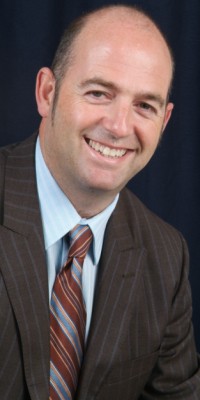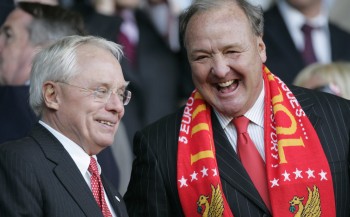|
The full extent of that influence became apparent when Dave Edmundson moved sideways into a new position as Head of Strategy just over a week ago, with the accompanying news that, alongside Barry Kilby, Brendan Flood would be taking on more responsibilities within the club. That announcement has been followed by a series of public pronouncements and interviews which have been unfailingly positive.
It isn't a takeover, and whilst I'm tempted to describe it as a revolution, that term isn't really accurate either - although we might be witnessing a revolution in the mindset of the club. Barry Kilby remains chairman, Steve Cotterill has been unequivocally backed as manager, and the composition of the rest of the board remains as we were.
But there is no doubt that substantial clout at Turf Moor is now wielded by Flood, and it is clear that the entrepreneur will be playing the dominant role in shaping the future of the club. It is he who will, henceforth, be setting much of the agenda - and it is he who will be providing the capital to take the club forwards. Fans will want to see those words translate into action, since personnel and results on the pitch are the bottom line for any football club. But the signs are that with a little patience, that is exactly what we will witness.
It was only about a month ago that some friends and I were discussing the takeover of Liverpool by Americans Tom Hicks and George Gillett, and our conclusions were confirmed a week or so ago when Gillett compared his buy-out of the club to a previous deal involving Weetabix. It isn't that I - or my Liverpool supporting friends - are necessarily hostile to the concept of a business-motivated takeover. It makes sense, in many ways, to have these marriages of convenience: club gets cash, club improves team and infrastructure, club becomes more successful and profitable; club can then be sold on at a profit.
Indeed, for many Burnley fans it would be hypocritical to decry such deals too vehemently, because in the distant past almost a decade ago (! Where does the time go?), we were similarly courted by an Anglo-American businessman, whose particular plan involved buying a third tier English club of some potential, injecting the capital to lift it towards the riches of the Premiership, take a cut and run. Now, that might be simplifying matters just a little, but when Ray Ingleby first arrived on the scene to challenge Frank Teasdale, he won the backing of supporters despite being disarmingly honest about his motivations. And, although he never did takeover, as a more low-key Vice-Chairman he is someone to whom Burnley Football Club shall forever be indebted.
The one type of investor who should be avoided at all costs is the Abramovich-type figure: the one with no prior connection to the club, nor any vested interest in improving the fortunes of the club and who is, as a result, liable to neglect it and leave it in strife as interest wanes a couple of years down the line when the next plaything is spied on the horizon.
But the ultimate investor is the committed fan with pockets deep enough to live the dream. Such benefactors are rare: only a few have been fortunate enough to benefit from such a figure. And there is no suggestion that Flood is about to join those to have spent money on a football club like it is going out of fashion. The indications are that he will be the next best thing, a committed director who will bolster every aspect of the club and guide it towards Premiership self-sufficiency, whilst providing the capital to give us a chance of making it. The thing about these men, in contrast to the Glazers and Hicks' of this earth, is that Flood, like Jack Walker and others, actually cares what happens after he is no longer involved. That is because he is a fan.
|
But in any event, equally as significant is the surge of energy and vision which Flood has generated. Perhaps Barry Kilby, for so long the figurehead of the club, was becoming wearied by the sapping burden of responsibility; the message had become less aspirational, more mechanical as reality frustrated his ability to live the dream without help. As his Lieutenant, Dave Edmundson never really convinced as the credible business leader who could drive the club onwards. There sometimes appeared to be a vacuum at the heart of the club's commercial operation.
The legacy of neither man should be lost, though, in the rush to acclaim the new pretender. Dave Edmundson has strengthened the commercial side of the club and played a role in capturing new investment. As for Kilby - well, without his leadership, acumen and sheer financial backing, Brendan Flood would not be stepping onto such a stable ship. And ultimately he has done exactly what he always said he would do: acted in the best interests of the club and encouraged other investment to allow the club to flourish.
It is to be hoped that the presence of a younger, dynamic presence will reinvigorate our Chairman, for he still has plenty to give. Four years ago, before Dave Edmundson arrived, I said that the perfect replacement for Andrew Watson as Chief Executive would be Barry Kilby with support from Ray Ingleby. With Brendan Flood now in the limelight, his double-act with Kilby is today's perfect solution.
So, whilst the rest of English Football goes around courting international businessmen of no fixed allegiance, we've found our investor closer to home. We going to spend good money, but we're not going demented. Two Clarets leading the club into a new dawn, in it for the long haul, people who the evidence suggest we can trust implicitly to shepherd the club from the heart. Fair play to them both. Now - lets get on down the road towards competing with the Boltons of this earth.


